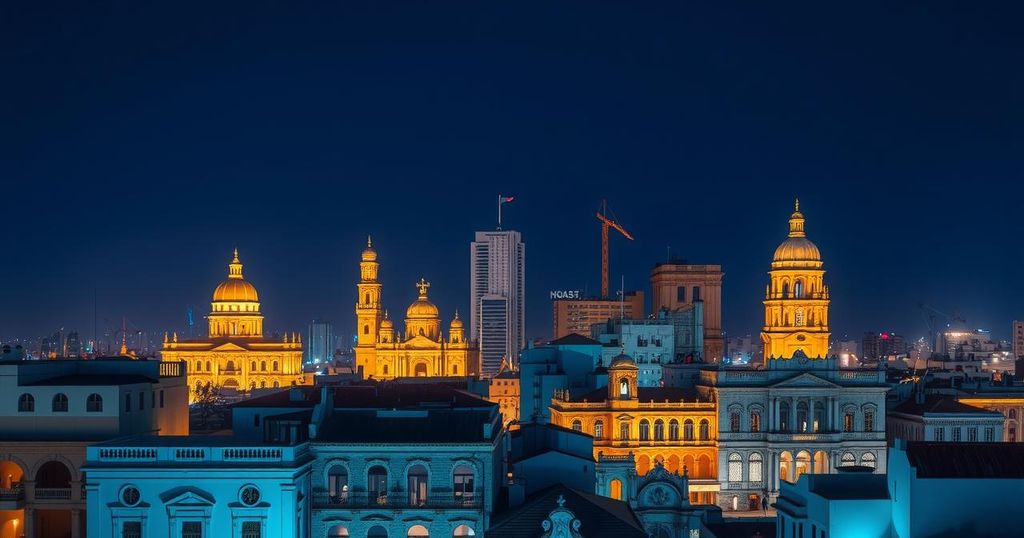World news
ANTONIO GUITERAS, ASIA, CUBA, DAVE SHERWOOD, DONALD TRUMP, EMERGENCY RESPONSE, EUROPE/ASIA, HAVANA, HAVANA´S ELECTRIC COMPANY, HURRICANE BERYL, MEXICO, NATURAL DISASTER, NATURAL DISASTERS, NORTH AMERICA, PHILIPPINES, POWER OUTAGES, REUTERS, RUSSIA, SOUTH AMERICA, U. S, VENEZUELA
Ethan Kim
0 Comments
Cuba Reconnects Electrical Grid, Restores Power to Much of Havana
Cuba has restored power to most of Havana after a major blackout affected 10 million people. The electrical grid was reconnected following a failure caused by a short circuit. Approximately two-thirds of the capital regained electricity, but the generation remains below normal demand. This energy crisis has been fueled by international sanctions, prompting the government to pursue solar energy development.
Cuba has successfully reconnected its national electrical grid, restoring power to much of Havana by late Sunday. This achievement comes almost two days after a significant island-wide outage affected approximately 10 million residents. The local electric company reported that by late Sunday evening, about two-thirds of clients in Havana had their power restored, with expectations for further increases overnight.
The grid shutdown occurred on Friday evening due to a short circuit at a substation in Havana, causing a cascading failure that halted power generation across the island. Streets and stoplights across the densely populated city, which is crucial for tourism, went dark, significantly disrupting commerce and daily life.
The grid operator confirmed that Cuba’s two largest oil-fired power plants, Felton and Antonio Guiteras, were operational again by late Sunday, marking a vital step in the restoration process. Power was also finally restored to Pinar del Rio, the westernmost province, just before sundown on the same day.
The recent grid collapse represents the fourth nationwide blackout in Cuba since October. The island’s oil-fired power plants have become increasingly outdated and ineffective, particularly as imports from Venezuela, Russia, and Mexico have decreased. Even before the latest outage, many areas were already experiencing extensive daily blackouts lasting over 20 hours.
Despite some progress in restoring electricity, officials indicated that they were generating only one-third of the usual daily demand, leaving many residents without power. Schools in Pinar del Río, Artemisa, and Mayabeque will remain closed until Tuesday to ensure suitable conditions for students.
The Cuban government attributes its ongoing energy crisis to the longstanding U.S. trade embargo established during the Cold War, as well as stricter sanctions imposed by President Donald Trump. In response to these challenges, the government is seeking to develop large solar farms with assistance from China to lessen reliance on outdated oil-fired generation.
In summary, Cuba has made significant strides in restoring electricity to Havana after a widespread blackout affected millions. Although power has been mostly restored, challenges remain with generation levels falling short of daily demand. The energy crisis has been exacerbated by external factors, including international sanctions. The government aims to transition towards renewable energy sources with foreign investment to overcome these challenges in the future.
Original Source: gazette.com




Post Comment